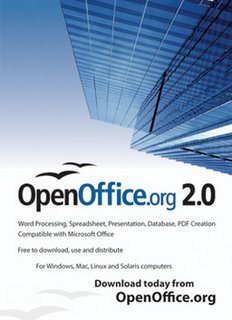HOWTO leave your computer
Joel Spolsky thinks that Choices = Headaches, discussing the OFF button in Windows Vista with its 7 choices and 2+n ways to access these choices.
The 7 choices are Sleep, Hibernate, Lock, Switch User, Logout, Restart, and Shut Down. By the way, I've got the same choices on my Ubuntu Linux.
If you've spoken to a non-geek recently, you may have noticed that they have no idea what the difference is between "sleep" and "hibernate." They could be trivially merged. One option down.Agreed. Both choices are really about "I'm going away from my computer for a while, and want to find it in its current state when I return -- including the battery level." Leaving the decision when to hibernate a suspended/sleeping computer should really be left with the power management software.
Switch User and Lock can be combined by letting a second user log on when the system is locked. That would probably save a lot of forced-logouts anyway. Another option down.Agreed. There is hardly any reason why one should switch user from a state other than locked. By the way, on Ubuntu the "Switch User" choice is there whenever the computer is locked.
Once you've merged Switch User and Lock, do you really need Log Off? The only thing Log Off gets you is that it exits all running programs. But so does powering off, so if you're really concerned about exiting all running programs, just power off and on again. One more option gone.This is where I think Joel misses one really important point. Log Off does not exit all running programs. It exits all userspace programs started by this user (unless specifically set to survive their owner logging off), but keep the system running so that other users (or myself) can still use its shared resources over the network. Well, Windows has traditionally been a PC (personal computer) thing while Unixes are built to be used in networks.
Restart can be eliminated. 95% of the time you need this it's because of an installation which prompted you to restart, anyway. For the other cases, you can just turn the power off and then turn it on again. Another option goes away. Less choice, less pain."An installation which prompted you to restart" means kernel update. Oops, not in Windows where you may be required to reboot your whole operating system after installing another word processor or web browser. How pathetic!
On the other hand, there are cases where you don't have physical access to the power button to turn your computer back on -- for example, if you're accessing it over a network. That's where shutdown -r comes in really handy.
Of course, you should eliminate the distinction between the icons and the menu. That eliminates two more choices.What distinction? There are different ways of doing things. Alice loves the simplicity of icons, Bob prefers the choice available in menus, Charlie appreciates the power of the command line, and Doris just closes the lid and leaves.
---
Many people nowadays think about "personalization" as ability to change your wallpaper, screen saver, and (if applicable) ring tones. I think that real personalization would mean the ability to modify your menus, keyboard shortcuts, preferred applications, and so on.
But then again, I'm a geek. And while I want to be able to fine-tune my working environment to my needs and likings, I agree that an IT specialist providing desktop support to 100 colleagues should really standardize the system configuration, and lock it up so that these support-needing colleagues would not be able to modify it. After all, they'd be calling in from a remote office, saying that their Word just refused to print, and you've got to be able to tell them which buttons, and in which order, to click.




 skype:
skype: